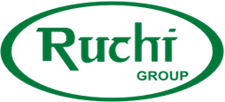
Bangalore: 2013 is going to witness almost 2.7 lakh crores worth software outsourcing deals coming up for renewal, which constitutes almost half the size of the Indian information technology industry. The Indian service providers are eagerly approaching this prospect in what is expected to be, a fierce fight for contracts, reports TOI.
Price discounting is nothing new, but the coming battle seems be to a serious one as some of the restraints that kept rivals under control seems to have scrapped away.
Besides all underlying factors, it is the shape in which the software service is in entering 2013 after leaving behind one of the most forgetful years in its history.
According to N Chandrasekaran, CEO of India’s largest software exporter Tata Consultancy Services, “being irrational depends upon the situation one is in. TCS which is steady towards industry growth looks forward to be optimistic about the sector’s prospect and is in good shape among other Indian information technology companies.”
The top four IT services companies – TCS, Infosys, Wipro and HCL technologies have their results announced for the October – December quarter.
Corporations Demanding Outcomes
TO I reports that the top four IT service companies are being seen as indicators that the phase of slow growth may come to an end. However, India’s software exports may barely grow by double digits, while the company copes with fundamental, technological and business model transformation. The certainties of linear growth where revenue is directly proportional to the number of employees is fading away and corporations are demanding outcomes rather than showing efforts.
As an example of aggressive discounting, analysts cite HCL Technologies recently winning a contract worth several million dollars from Deutsche Bank. Although not clear of the discounting happened, executives aware of the deal negotiations, described the pricing offered as ‘significantly lower’. Once a major client of Infosys, Deutsche Bank now brings in excess of $50 million in business to HCL Technologies.
Competition seems to be heated further as large outsourcing contracts from Procter and Gamble, American Express, Bank of America and Unilever which were first signed during 2002-03, come up for renewal this year. Deep pricing discounts and even paying money upfront are becoming commonplace with associated negative implications for margins, say senior executives.
According to Wipro’s CEO, TK Kurien, fierce fights exist between the rational and irrational players. In a recent interview, as per his observation, he feels that some which were categorized as rational have moved on to the other side.
Analysts believe that Infosys which has been extremely profit-margin conscious is now beginning to show increased flexibility on pricing and a greater willingness to take on deals which it had earlier shunned. Infosys seems to be under pressure to grow faster as compared to how it was being outpaced by partners previously.
However, analysts on seeing the company’s strong performance in the December quarter say that Infosys is being led by a desire to protect turf in a slowing market with enhanced competition. A deal wins for Infosys means a deal loss for another vendor, who may necessarily get their share of business and can drive a competitive response.
Tags: aviation, Business, economy, HCL technologies, Indian information technology industry, Infosys, internet, outsourcing, TCS, technology, transportation, Wipro
 During the quarter, branded sales registered a healthy 22.95% growth from Rs. 1,374.23 crore to Rs. 1,689.59 crore
During the quarter, branded sales registered a healthy 22.95% growth from Rs. 1,374.23 crore to Rs. 1,689.59 crore Kolkata, Feb 4 (PTI) Ruchi Soya Industries today said it aims to expand the Nutrela brand five-fold to Rs 5,000 crore in the next five years.Stating that Nutrela was a small brand compared to the Ruchi brand which accounted for sale of Rs 7,000-8,000 crore, Ruchi Soya AVP Marketing Sandipan Ghosh said the company wanted to make Nutrela a Rs 5,000 crore brand in the next five years from Rs 1,000-1,200 crore now.
Kolkata, Feb 4 (PTI) Ruchi Soya Industries today said it aims to expand the Nutrela brand five-fold to Rs 5,000 crore in the next five years.Stating that Nutrela was a small brand compared to the Ruchi brand which accounted for sale of Rs 7,000-8,000 crore, Ruchi Soya AVP Marketing Sandipan Ghosh said the company wanted to make Nutrela a Rs 5,000 crore brand in the next five years from Rs 1,000-1,200 crore now. Industries Ltd assistant vice president, marketing, consumer brands division, Sandipan Ghosh said here.
Industries Ltd assistant vice president, marketing, consumer brands division, Sandipan Ghosh said here. Yahoo! confirmed Tuesday that it bought Snip.it, a young San Francisco startup that lets people create scrapbooks with pictures, articles, videos and other content found online.
Yahoo! confirmed Tuesday that it bought Snip.it, a young San Francisco startup that lets people create scrapbooks with pictures, articles, videos and other content found online.